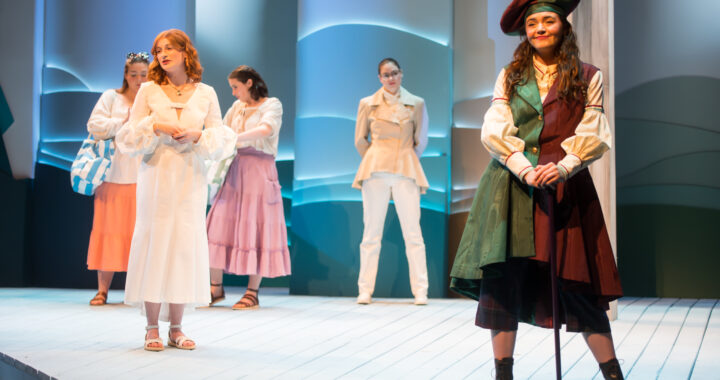Cornhole Club offers students a new opportunity to get outside
4 min read
The UMW Cornhole Club gives students the opportunity to learn a new game and recreationally play against each other. @umwcornhole / Instagram.com
by ABIGAIL SLAUGHTER
Copy Editor
Although cooler fall weather is approaching, some students still actively participate in recreational activities outdoors. One of these activities takes the form of a relatively new club on campus called the UMW Cornhole Club.
The club was approved only one year ago.
“It’s brand new,” said Jeffrey McLean, a junior business administration major and president of the UMW Cornhole Club. “We play cornhole once a month, and it’s a social thing—you sit around, talk and play cornhole.”
McLean wanted to create a social activity people could participate in.
“One of the problems with this school is it’s harder to meet people,” he said. “I wanted a place where people could be [part of a] social network and branch out, and I think that’s a really important thing here.”
Reese Place, a senior communication and digital studies major and vice president of the UMW Cornhole Club, helped create the club with McLean for the love of the game.
“I liked organizing things and I love cornhole,” said Place. “I still have to be COVID-safe, and cornhole is perfect because you can meet outside.”
Place said the club borrows cornhole boards from friends.
“We have so many friends who love cornhole,” she said. “As the club gets bigger, we will probably rent them out [from SAE].”
Because of COVID, the club’s most recent meeting was actually their first; they hosted their first meeting on Oct. 16 on Jefferson Square. Despite being a new club on campus, they had promising turnout for their first meeting.
“We’ve only had one so far; there [were] like 20 to 25 people,” said McLean. “At Club Carnival, we got like 100 plus [people] to sign up.”
According to McLean, the students at Club Carnival seemed to take interest in the relaxed environment that the club promised.
“People were like ‘How casual is it?’ I was like ‘it’s once a month.’ It’s not a commitment,” he said.
After news spread to other schools about the formation of a cornhole club at UMW, McLean started to receive offers to take the club to a more competitive level.
“I got an email a while back [saying] ‘Oh, would you like to [compete]?’” he said.
However, McLean turned down this opportunity, as the club was meant to focus more on the social aspect of the game rather than competing.
The formation of the UMW Cornhole Club was not a spontaneous decision. McLean grew up playing cornhole, so he was not at all new to the game upon attending college. During his first year at UMW, he made an observation that ended up leading to the formation of the club.
“My freshman year, I’d go outside to Ball Circle and there’s just nothing happening,” said McLean. He thought there was so much more that could be done with the space, so he got a group of friends together and started a club that would utilize that space and bring people together.
Sandrine Sutphin, the director of Student Activities and Engagement (SAE), is familiar with the process students go through to create clubs. She said a group can start on the chartering process “as long as they have submitted all the required information, including the name of five interested members, a club advisor and a constitution.”
“[The Inter-Club Association (ICA) and SAE] work closely together on the chartering process,” said Sutphin. “Typically, when all ICA officer positions are filled, those officers vote on whether or not a club should be chartered.”
After McLean got a couple of friends to sign up, filled out the proper paperwork and attended an approval meeting, the club was approved. According to him, the process took between a couple of months to a semester to become an approved club, but the work he had to do amounted to about 30 minutes.
“It’s really easy to make a club on campus,” said McLean.
Despite his success in creating a club, the process is currently different for those who want to create clubs in the near future. “At this time, all ICA officer positions are vacant, so SAE has carried on the role of chartering clubs this semester.”
McLean and Place also run an Instagram account for the club, which McLean said is continuously gaining followers. They use it to post about meetings and to respond to students’ direct messages about any cornhole-related questions they may have.
Meetings are typically held on Ball Circle, filling that space that McLean noticed years ago was not being utilized much by students. To stay updated on upcoming meetings, students can follow @umwcornhole for more information and details.











